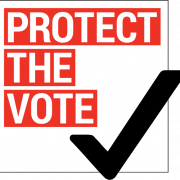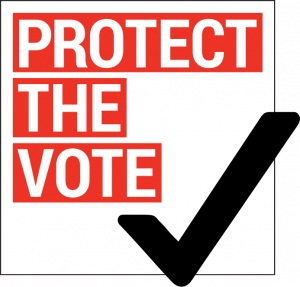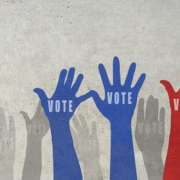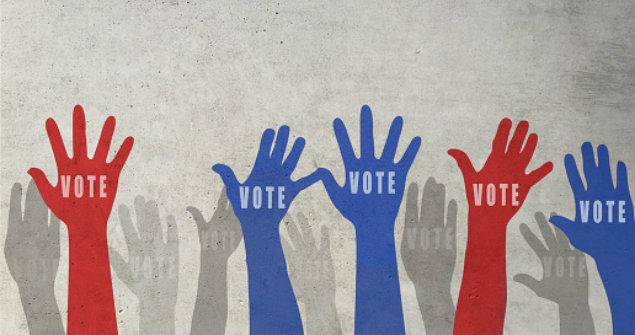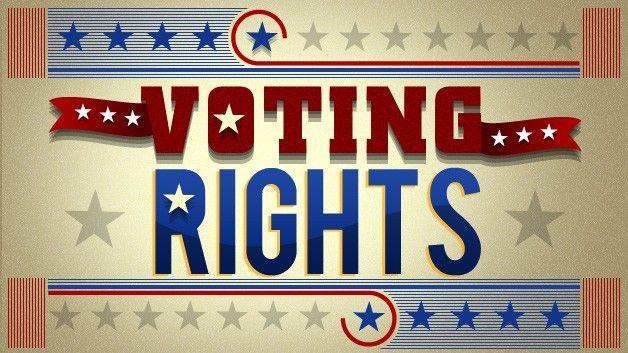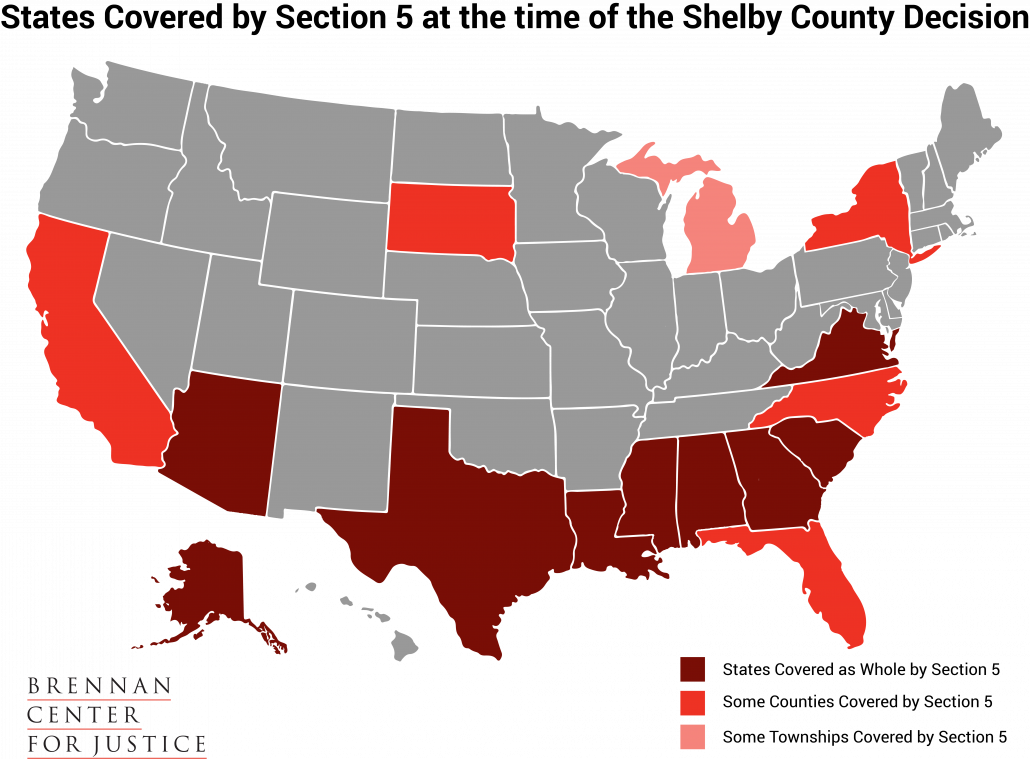UCLA LPPI Policy Fellows Fight for an Inclusive Democracy During the Midterm Elections and Beyond
By: Alise Brillault
As we approach the 2022 midterm elections, the UCLA Latino Policy and Politics Institute (UCLA LPPI) is working to advance an inclusive democracy that reflects the shifting demographics of the United States. At 19% of the population, Latinos are a youthful and diverse demographic group whose votes are consequential and whose perspectives need to be centered. Not only were they responsible for 51% of U.S. population growth in the last decade, but six out of ten Latinos are of Millennial age or younger.
However, increasing attacks on voting rights in key states threaten to dilute the participation of Latinos and other communities of color in our democracy. These assaults will continue until we build the infrastructure needed to ensure everyone who wants to cast a ballot and make their voices heard has the opportunity to do so.
Through its student fellowship program, UCLA LPPI is building a pipeline of young leaders who are taking on the challenge of ensuring our political system works for everyone. Through hands-on training in areas such as voting rights and election data analysis, students are exposed to the policy challenges of today and are provided the tools necessary to inform a better tomorrow. Alumni of the program go on to shape policy making through influential roles in sectors such as state and federal government, civil society organizations and beyond.
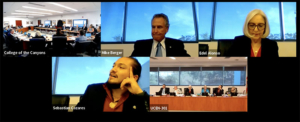
UCLA LPPI Policy Fellow Sebastian Cazares in a Santa Clarita Community College District Board of Trustees meeting.
One such leader, Sebastian Cazares, has already made history as Los Angeles County’s youngest elected official – while working as a policy fellow with the UCLA LPPI Voting Rights Project. Having recently graduated from UCLA with a bachelor’s degree in political science and a minor in Chicana/o and Central American studies, Cazares has entered his first year of UCLA’s master of public policy program while serving as a member of the Santa Clarita Community College District Board of Trustees. According to Cazares, knowledge he has gained from UCLA LPPI has provided guidance for his own work as an elected official – and in turn, his on-the-ground perspective has informed his advocacy work within the Voting Rights Project:
“As a governing board member, I approved my own school board district during the recent redistricting process in a manner consistent with defending civil rights and voting rights. I also sued the City of Santa Clarita and won in a landmark victory, defeating one of the last cities in Los Angeles County to utilize an election system that is proven to disenfranchise Latinos. Both of my personal accomplishments came to fruition due to the incredible education provided by UCLA’s Political Science and Chicano Studies undergraduate programs, the UCLA Luskin School and training I gained from the Latino Politics and Policy Institute.”
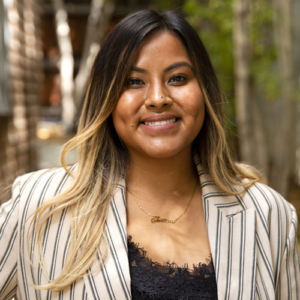
Alumna Celina Avalos Jaramillo
Likewise, the skills and experience that alumna Celina Avalos Jaramillo gained during her fellowship at UCLA LPPI continue to inform her work as a voting rights advocate and master of public policy candidate at UC Berkeley’s Goldman School of Public Policy. While at UCLA LPPI conducting research on topics focused on expanding opportunity for all – from voting rights to health care and criminal justice reform – Avalos Jaramilo co-led an on-campus coalition that increased student voter turnout in the 2018 elections by 500%. Since graduating with her bachelor’s degree in political science from UCLA, she has worked with the NAACP Legal Defense and Educational Fund and the U.S. Department of Justice to protect the right to vote.
“I understand what it means to be disenfranchised from the political process and excluded from most public policies,” Avalos Jaramillo revealed. “UCLA LPPI gave me the confidence that I needed as a young Latina from the Eastern Coachella Valley to strive to ensure that every American has the right to live a prosperous, healthy and just life – not just a select few.”
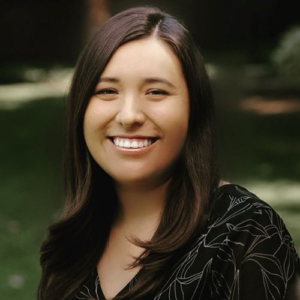
Yaritza Gonzalez
In addition to her on- and off-campus leadership roles, policy fellow Yaritza González Rodríguez is currently engaged in expanding access to the ballot box through her work with the UCLA LPPI Voting Rights Project,. A second-year master of public policy student at the UCLA Luskin School, González Rodríguez has supported the Voting Rights Project on key initiatives to understand different demographic groups’ voting behaviors. These analyses have provided the California Secretary of State with important data on patterns of voting, such as which groups tend to vote by mail as opposed to in-person.
González Rodríguez was recently elected as Director of Legislative Affairs for the University of California Graduate and Professional Council. In this capacity, she disseminates information on how to vote for California propositions and advocates for equitable policy changes within the UC System. She has also organized community events to endorse candidates and educate on the redistricting process through her role as a Board Member for the Los Angeles County Young Democrats.
“UCLA LPPI and the Voting Rights Project have given me the opportunity to work on important voting rights research and cases that aim to promote an inclusive democracy,” González Rodríguez said. “These experiences inform my other leadership roles, including on critical issues such as redistricting.”
UCLA LPPI is supporting the development of the BIPOC leaders of today and tomorrow who are protecting and expanding voting rights while building a fair and inclusive democracy grounded in equity and justice. These policy fellows backfill the nation’s leadership vacuum by increasing the capacity of new voices to advocate for the needs of underserved communities. This creates new pathways for progress grounded in data and research that ensures no one is left behind.

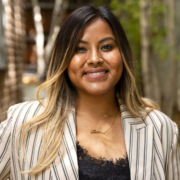
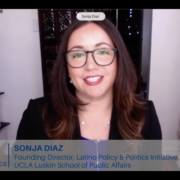
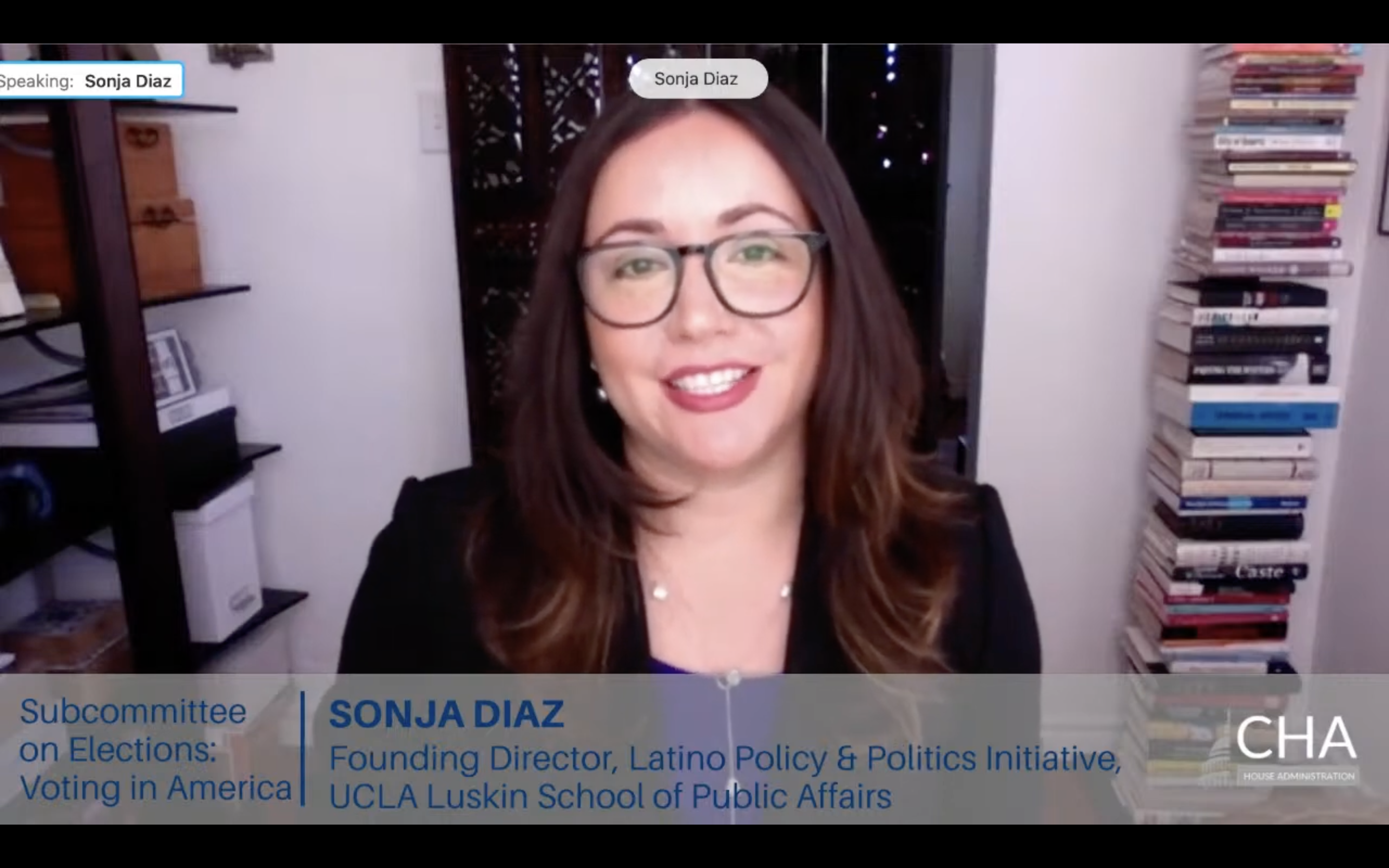
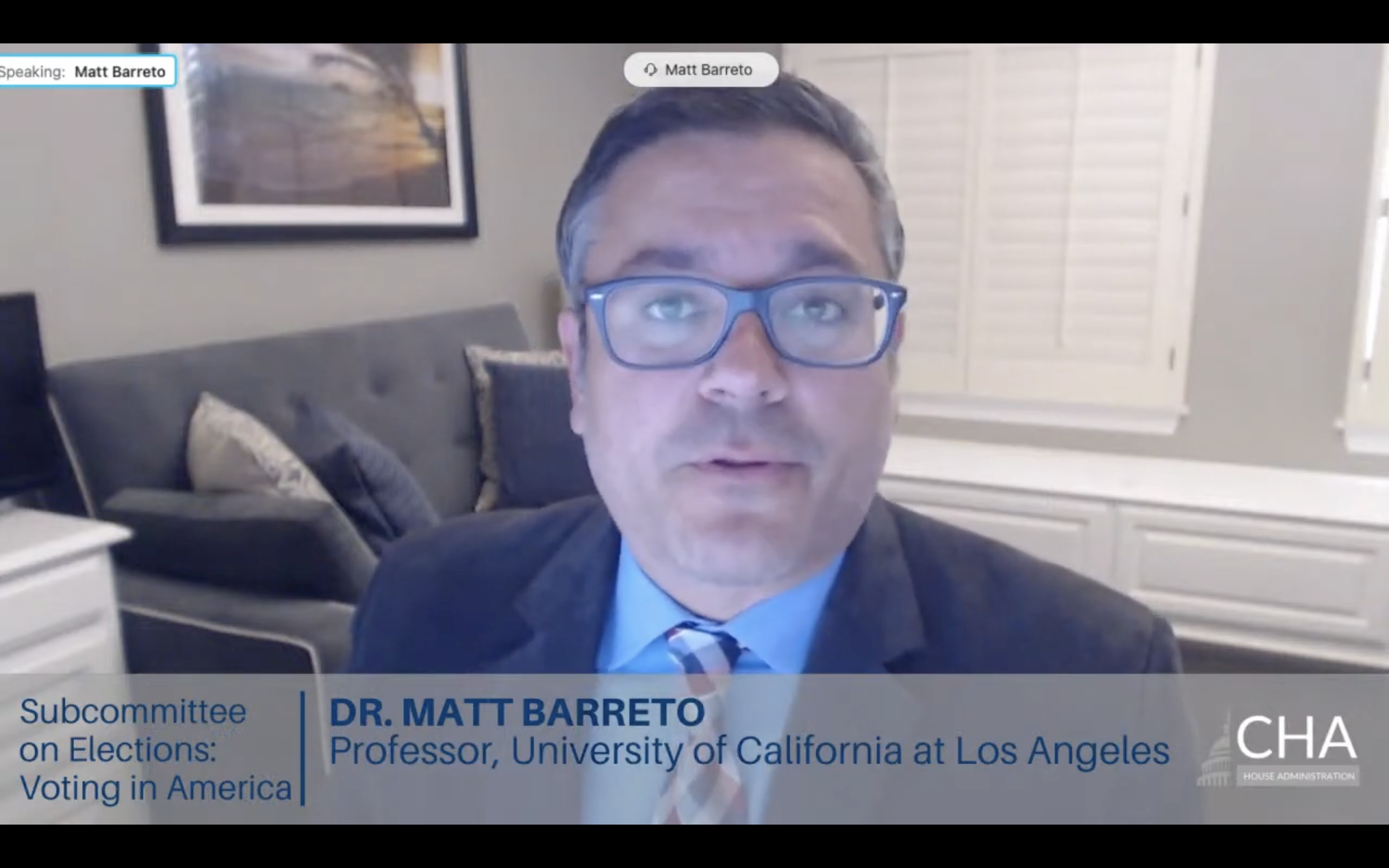
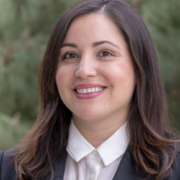

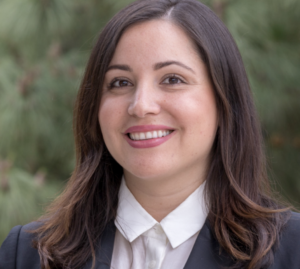 “Voter suppression is a feedback loop,” she said, and one that elected officials need to act to end.
“Voter suppression is a feedback loop,” she said, and one that elected officials need to act to end.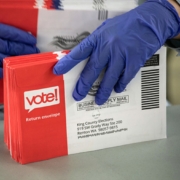
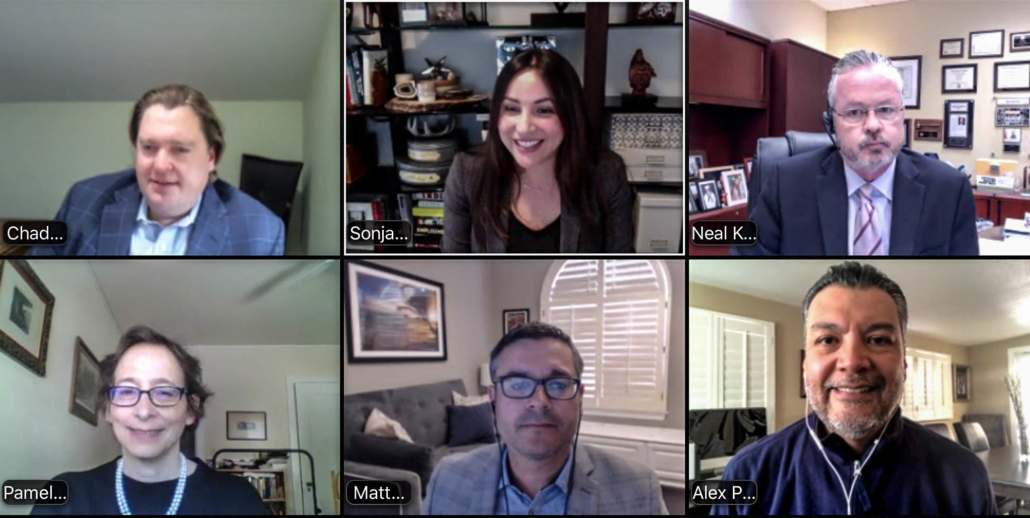
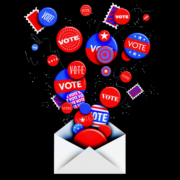
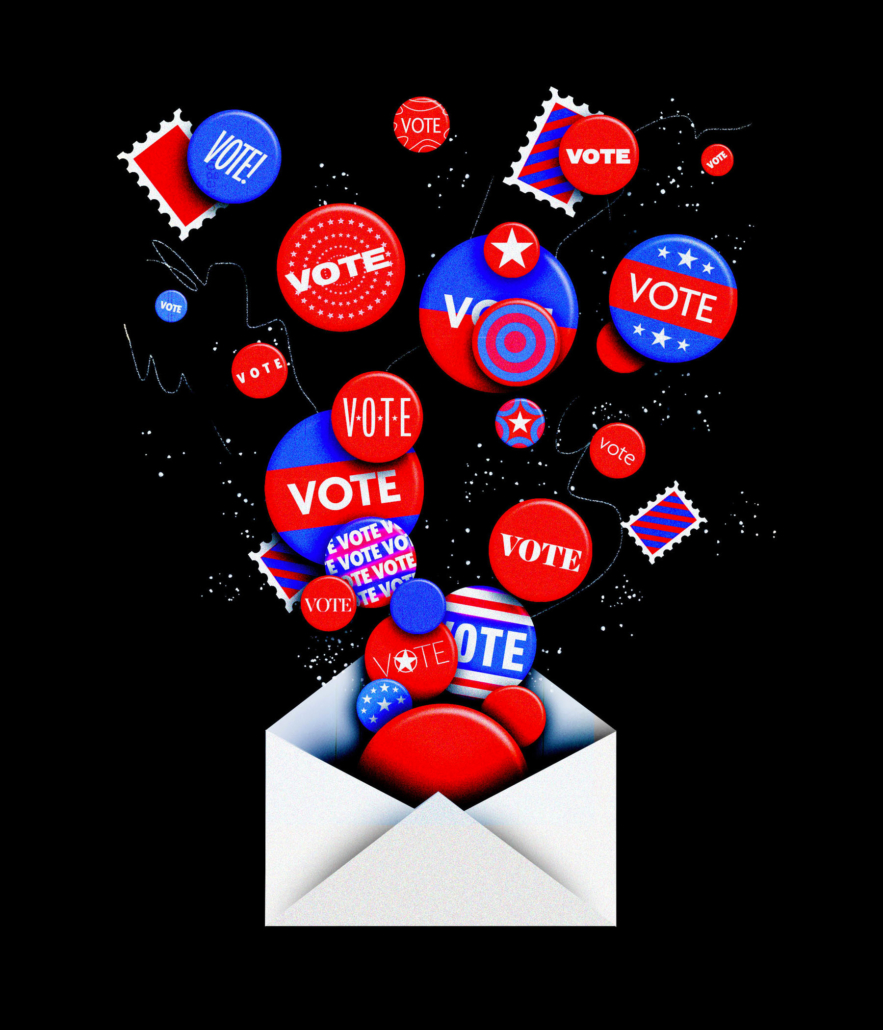
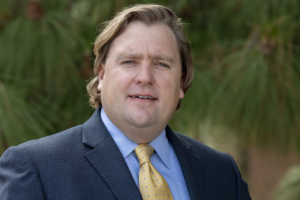 “States around the country are pushing back primary and runoff elections in the hope that election procedures can return to normal at a later time,” said
“States around the country are pushing back primary and runoff elections in the hope that election procedures can return to normal at a later time,” said 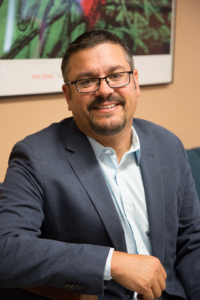 “The 2020 election could have record turnout for young voters and communities of color, groups that must be engaged in deciding the future of our country and on issues that affect our local communities,” said
“The 2020 election could have record turnout for young voters and communities of color, groups that must be engaged in deciding the future of our country and on issues that affect our local communities,” said 